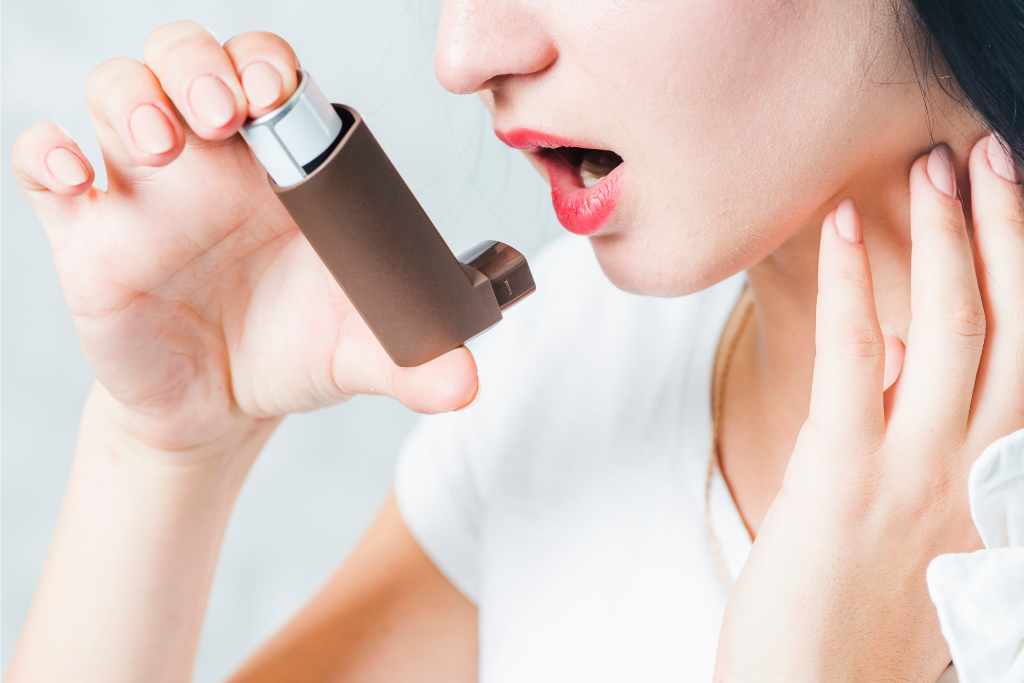Asthma is a respiratory condition in which the airways that carry air to our lungs get narrowed and inflamed. When our airways are inflamed they become very sensitive. If substances called triggers present around us are inhaled they react with the airways triggering an asthmatic attack. Upon this reaction, the airways produce mucus which blocks the free-flowing air even more.
We at Vision Multispeciality Hospital receive several cases of asthma on a regular basis. It has been increasing due to the rise in pollution levels in the air. Our team of doctors is equipped to handle different cases according to their symptoms.
An asthmatic patient will get sever cough, tightening of the chest, wheezing and gasping for breath. Some people have just a mild attack which passes off in a while, but for others, the attack is severe and needs immediate treatment.
Triggers are things that make an asthmatic patient get an attack, but asthma in the first place has several causes. Asthma tends to be genetic and runs in the family. If any of the parents have asthma there is a likelihood that their children may develop it. Parents need to monitor their children and make sure that when either of them has it, they watch out for the symptoms in their children.
If children have allergies at a young age, they are more prone to developing asthma as they grow. An allergy like eczema may be a sign of asthma in the future. Smoking during pregnancy leads to an increased risk of your child having asthma. The other part of it is that smoking will aggravate asthma in an adult as well.

Premature births are another cause of asthma. If your baby is born early and has to be put on a ventilator, there are high chances that it will be prone to asthma. Female hormones can also be a cause of asthma. Some women develop asthma during menopause.
Once you are detected with Asthma your treatment begins. As a caution do not try to self-treat after reading stuff on the internet.
Make sure you visit a doctor and get proper medical advice before starting any treatment. Your treatment will depend on various factors like severity of the condition, your age and symptoms. The long term asthma treatments involve inhaled corticosteroids where this medication needs to be taken by inhaling it into your system. Several drugs like fluticasone (Flonase, Flovent HFA), budesonide (Pulmicort Flexhaler, Rhinocort), flunisolide (Aerospan HFA), ciclesonide (Alvesco, Omnaris, Zetonna), beclomethasone (Qnasl, Qvar), mometasone (Asmanex) and fluticasone furoate (Arnuity Ellipta) are used.
The oral medications include montelukast (Singulair), zafirlukast (Accolate) and zileuton (Zyflo), they help take care of the symptoms for up to 24 hours. There are also pills like Theophylline which is one pill a day that helps to relax the muscles around the airways.
Besides, medication it is important to treat yourself by leading a healthy life.
Try and prevent yourself from being exposed to triggers once you know that you have developed asthma.
- Try and use your air conditioner which purifies the air reduces dust and denies access to triggers.
- Avoid using carpets, encase pillows and use washable curtains.
- Use a dehumidifier if you live in damp conditions. Try and avoid living around pets as their fur is a major trigger.
- In addition to all of this make sure to get regular exercise, maintain a healthy weight and start doing some breathing exercises.
Follow the exact treatment your doctor has prescribed for you and make sure you have him informed about any lifestyle changes that you wish to bring about to yourself.



